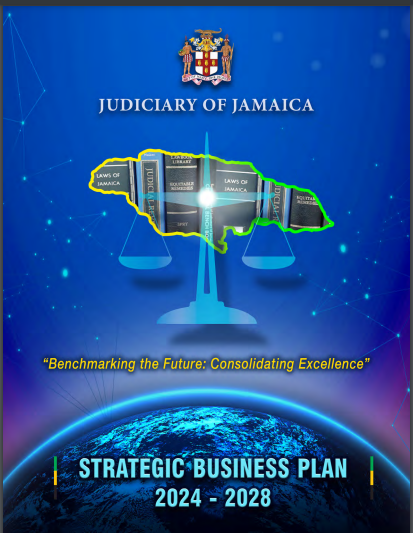You are here
Frequently Asked Questions
Pursuant to Section 14(4) of the Maintenance Act in determining the amount and duration of support, the Court shall consider all the circumstances of the parties including the matters specified in sections 5(2), 9(2) or 10(2),
5 (2) In determining the amount and duration of support to be given, to a spouse under a maintenance order, the Court shall have regard to the following matters in addition to the matters specified in section 14(4)-
(a) the length of time of the marriage or cohabitation;
(b) the spouse's contribution to the relationship and the economic consequences of the relationship for the spouse;
(c) the effect of the responsibilities assumed during the marriage or cohabitation on the spouse's earning capacity;
(d) the spouse's needs, having regard to the accustomed standard of living during the marriage or cohabitation;
(e) whether the spouse has undertaken the care of a child of eighteen years of age or over who is unable, by reason of illness, disability or other cause, to care for himself;
(f) any housekeeping, child care or other domestic service performed by the spouse for the family, as if the spouse were devoting the time spent in performing that service in remunerative employment and were contributing the earnings to the family's support;
(g) the effect of the spouse's child care responsibilities on the spouse's earnings and career development;
(h) the terms of any order made or proposed to be made under the Property (Rights of Spouses) Act in relation to the property of the parties;
(i) the eligibility of either spouse for a pension, allowance or benefit under any rule, enactment, superannuation fund or scheme, and the rate of that pension, allowance or benefit.
9 (2) In considering the circumstances of a dependent who is a child, the Court shall have regard to the following matters in addition to the circumstances specified in section 14(4)-
(a) that each parent has an obligation to provide support for the child;
(b) the child's aptitude for, and reasonable prospects of, obtaining an education; and
(c) the child's need for a stable environment.
10 (2) In considering the circumstances of a dependent who is a parent or grandparent, the Court shall have regard to whether, by reason of age or infirmity, that dependent is unable to provide for himself or herself; as the case may require, and-
(a) the respondent's and the dependant's assets and means;
(b) the assets and means that the dependant and the respondent are likely to have in the future; (c) the dependant's capacity to contribute to the dependant's own support;
(d) the capacity of the respondent to provide support;
(e) the mental and physical health and age of the dependant and the respondent and the capacity of each of them for appropriate gainful employment;
(f) the measures available for the dependant to become able to provide for the dependant's own support and the length of time and cost involved to enable the dependant to take those measures;
(g) any legal obligation of the respondent or the dependant to provide support for another person;
(h) the desirability of the dependant or respondent staying at home to care for a child;
(i) any contribution made by the dependant to the realization of the respondent's career potential;
(j) any other legal right of the dependant to support other than out of public funds;
(k) the extent to which the payment of maintenance to the dependant would increase the dependant's earning capacity by enabling the dependant to undertake a course of education or training or to establish himself or herself in a business or otherwise to obtain an adequate income;
(l) the quality of the relationship between the dependant and the respondent;
(m) any fact or circumstance which, in the opinion of the Court, the justice of the case requires to be taken into account.
If the Respondent is having difficulty paying a sum ordered by the Court, he or she can make an application to the Court for the order to be varied. This application to Vary the Order can be made pursuant to Section 18 of the Maintenance Act which states;
At any time after a maintenance order or an order of attachment has been made under this Act, a Court may upon the application of-
(a) any of the parties to the proceedings in which such order was made;
(b) any person having the actual care and custody of a child who is a dependant; or
(c) any person to whom any payment was directed in such order to be made, vary the order in such manner as the Court thinks fit, suspend the order, revive a suspended order or cancel the order if circumstances so warrant.
Not anyone can request a Court document.
If a person is a party to an action that is before the Court and is desirous of obtaining copies of documents on the file then such a person can make a request in writing and submit it to the court's office. The person making such a request will be required to pay for said copies.
Most court matters are open to the public, these matters include traffic violations, civil cases and some criminal cases. However, there are 'in camera' matters which are of a sensitive nature and not everyone is allowed to sit and listen to these. These matters are usually of a sexual nature or gun offences.
Children Court matters are dealt with 'in camera' or privately pursuant to Section 43
1. Where, in any proceedings in relation to an offence against, or any conduct contrary to, decency or morality, it appears to the court that a person who is called as a witness is a child, the court may direct that all or any persons, not being members or officers of the court, parties to the case, their attorneys-at-law, or persons otherwise directly concerned in the case, be excluded from the court during the taking of the evidence of that witness.
2. The powers conferred on a court by this section shall be in addition and without prejudice to any other powers of the court to hear proceedings in camera.
Access to information is an individual's right to obtain and use information collected or generated by others. It is also important to note that the Access to Information Act does not apply to Court files unless it is a matter of an administrative nature. Please see section 5(7) of the Access to Information Act.
Pursuant to Section 12 of the Maintenance Act, an application for maintenance of a dependent may be made to the Court by the dependent or, in the case of a dependent referred to in section 8(1) (a) or (b) of the said Act which is the parent's unmarried child who is a minor or in need of such maintenance, by reason of physical or mental infirmity or disability.
This application may also be pursued by a parent of the dependent or any other person who has the care and custody of the dependent.
Where a local authority or other Government agency is providing assistance in respect of the maintenance of a dependent; or an application for such assistance has been made to the local authority or other Government agency by or on behalf of the dependent, an application for a maintenance order may be made to the Court by the local authority or other Government agency.
Pursuant to Section 12 of the Maintenance Orders (Facilities for Enforcement), Where before or after the 1st day of July, 1988-
(a) a court in Jamaica has made a maintenance order against a person; and
(b) it is proved to the court that such person is resident in a reciprocating state,
the court shall, upon the request of the payee, send a certified copy of the order to the Minister for transmission through the appropriate authority to the appropriate court in that state for registration and enforcement.
As a landlord, if you have served your tenant with a notice to quit and deliver up peaceful possession of any dwelling home or business, if that tenant continues in possession then you can attend at the Court's Office and initiate a claim for Recovery of Possession. You need to ensure that you have the expired notice to substantiate your claim.
A Plaintiff can appoint an agent by way of Power of Attorney to pursue an action in the Court against a Tenant for Recovery of Possession or Arrears of Rent if he or she is unable to pursue such an action personally.











